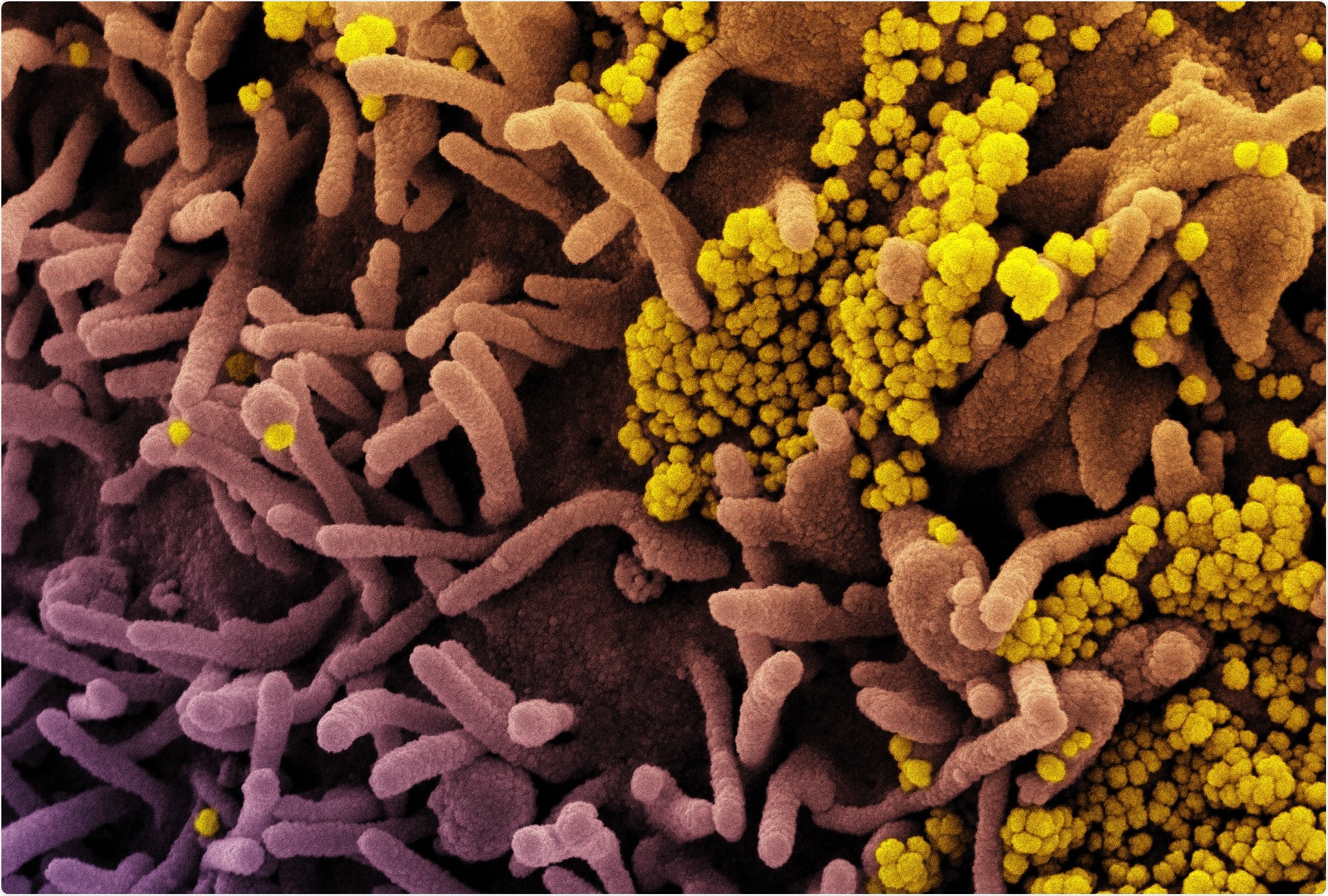Home » Health News »
Plasma zinc status not an effective prognostic factor for hospitalized COVID-19 patients
The severe acute respiratory syndrome coronavirus 2 (SARS-CoV-2) the causative agent of the coronavirus 2019 (COVID-19) pandemic, has been associated with mortality and morbidity within patients who develop cytokine releasing syndrome (CRS). Due to previous evidence suggesting that zinc deficiencies can lead to complications along with an impaired antiviral response, a group of international researchers has undertaken a prospective observational study to investigate this association further.
The researchers explored the association between the plasma zinc concentration as well as the development of CRS while observing the subsequent consequence of this in hospitalized COVID-19 patients.
A pre-print version of the paper is available on the medRxiv* server, while the article undergoes peer review.

The Study
The study undertaken by the researchers consisted of a single-center observational approach within a tertiary hospital within CUB-Hôpital Erasme, Brussels. The research included 139 adult patients who had PCR-confirmed coronavirus and were enrolled within 72 hours of being admitted to the hospital from May 2020 to November 2020.
In order to assess CRS, the presence and severity of COVID-19-associated hyperinflammatory syndrome (cHIS) was measured using a six-point clinical scale validated within the study. The clinical outcomes were measured after a 90 day period. The recorded data included the length of hospital stay, the incidence of mechanical ventilation, and mortality.
Significance of Zinc
Zinc is the second most abundant trace mineral found in humans, however, approximately 20% of the global population suffers from some sort of zinc deficiency.
The importance of zinc within health is wide-spanning, with this mineral being significant for wound healing, normal growth, and development and modulating the immune system, including antiviral responses. Zinc is an integral component that makes up approximately 10% of the human proteome and encompasses many crucial enzymes and transcriptional factors.
Additionally, zinc status is a critical factor for antiviral immunity. Those with zinc deficiencies are more likely to acquire viral infections such as HIV or hepatitis C. With chronic zinc deficiency, the production of pro-inflammatory cytokines increases, which subsequently affects the outcome of inflammatory and immune disorders and diseases.
The pre-print study mentions previous studies that provide evidence for zinc deficiency associated with lung-damaging complications such as acute respiratory distress syndrome while also confirming the impaired antiviral influence this mineral can also have.
Findings
The study uncovered an interesting development that included a vast majority of hospitalized COVID-19 patients being zinc deficient. However, while this was the case, there was a lack of evidence on zinc plasma concentration and COVID-19-associated hyperinflammatory syndrome, which was also true of mortality and morbidity outcomes.
Although the results of this study supported the association of CRS with severe infections from SARS-CoV-2 and subsequent mortality, there was a lack of solid evidence provided by the assessment of the COVID-19-associated hyperinflammatory syndrome (cHIS) score. This result differed from another study which was referred to in the article due to the reporting in the lack of evidence of this association.
The researchers of this paper support the finding of CRS association with severe COVID-19; however, they mention that this result was found despite the use of immunomodulatory or suppressive therapies provided to patients, which would work to reduce the risk of CRS, improving patient outcome but reducing the cHis score. This may have influenced the study results and the lack of significance of this association found.
The study concluded that this utilization of zinc concentrations as a prognostic factor is unreliable and not supported by the findings. Although, further research studies are encouraged to investigate the role of zinc as a biomarker to assess its reliability in predicting risks of developing tissue-damaging CRS and the subsequent outcomes in SARS-CoV-2 infected patients.
*Important Notice
medRxiv publishes preliminary scientific reports that are not peer-reviewed and, therefore, should not be regarded as conclusive, guide clinical practice/health-related behavior, or treated as established information.
- Plasma zinc status and hyperinflammatory syndrome in hospitalized COVID-19 patients Gil Verschelden, Maxim Noeparast, Maryam Noparast, Charlotte Michel, Frédéric Cotton, Cleo Goyvaerts, Maya Hites medRxiv 2021.06.09.21258271; doi: https://doi.org/10.1101/2021.06.09.21258271, https://www.medrxiv.org/content/10.1101/2021.06.09.21258271v1
Posted in: Medical Research News | Disease/Infection News
Tags: Acute Respiratory Distress Syndrome, Biomarker, Chronic, Coronavirus, Coronavirus Disease COVID-19, Cytokine, Cytokines, Hepatitis C, HIV, Hospital, Immune System, Immunomodulatory, Mortality, Pandemic, Proteome, Research, Respiratory, SARS, SARS-CoV-2, Severe Acute Respiratory, Severe Acute Respiratory Syndrome, Syndrome, Wound, Wound Healing, Zinc

Written by
Marzia Khan
Marzia Khan is a lover of scientific research and innovation. She immerses herself in literature and novel therapeutics which she does through her position on the Royal Free Ethical Review Board. Marzia has a MSc in Nanotechnology and Regenerative Medicine as well as a BSc in Biomedical Sciences. She is currently working in the NHS and is engaging in a scientific innovation program.
Source: Read Full Article



